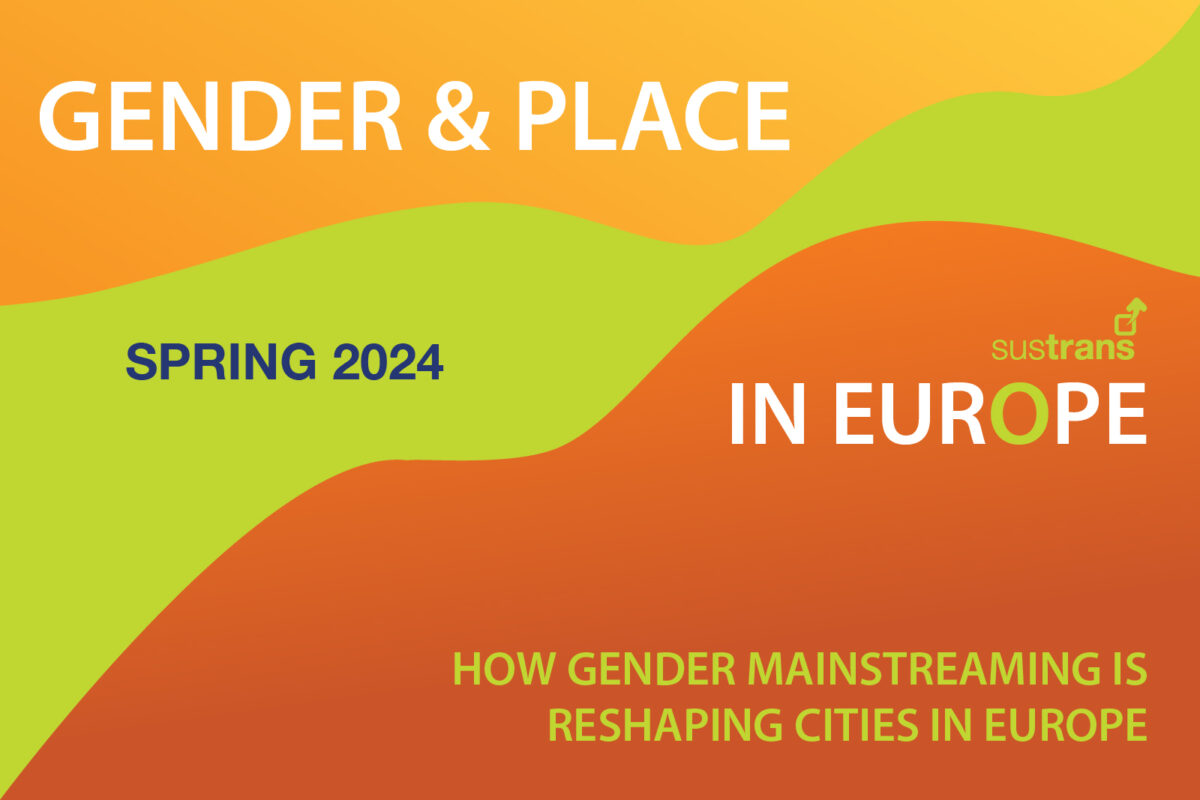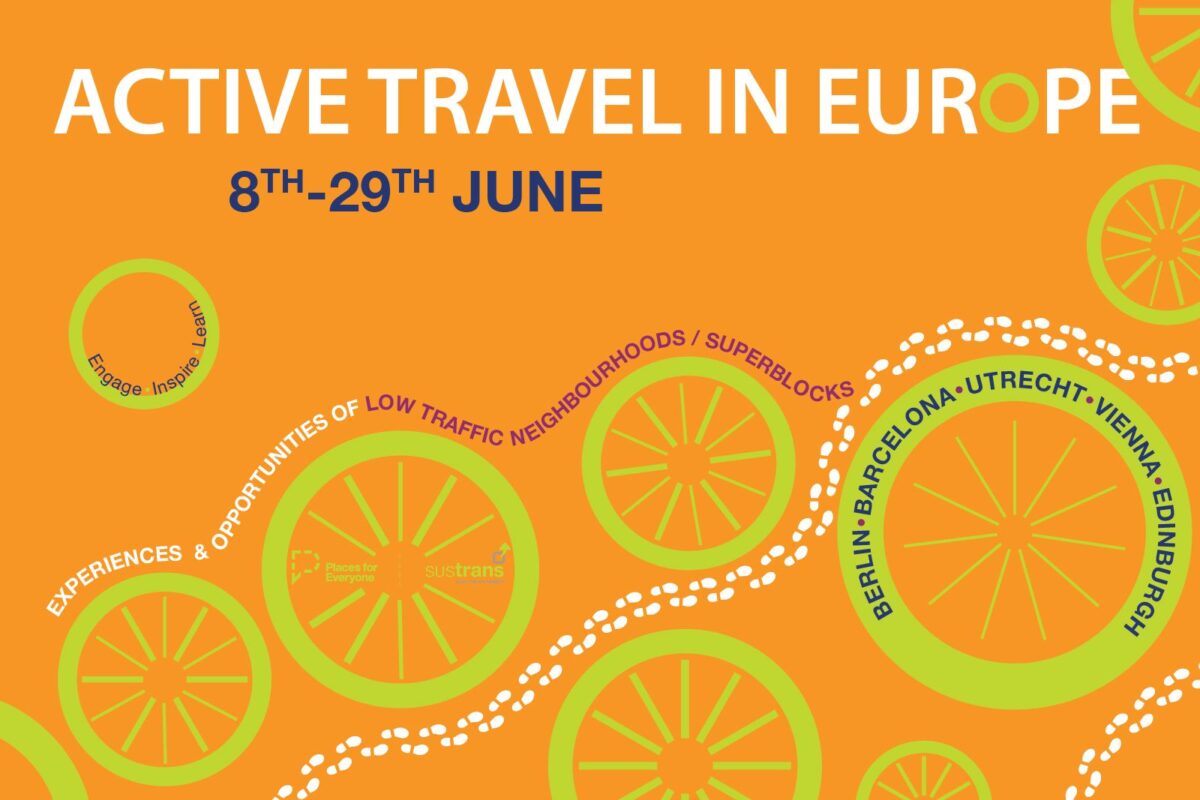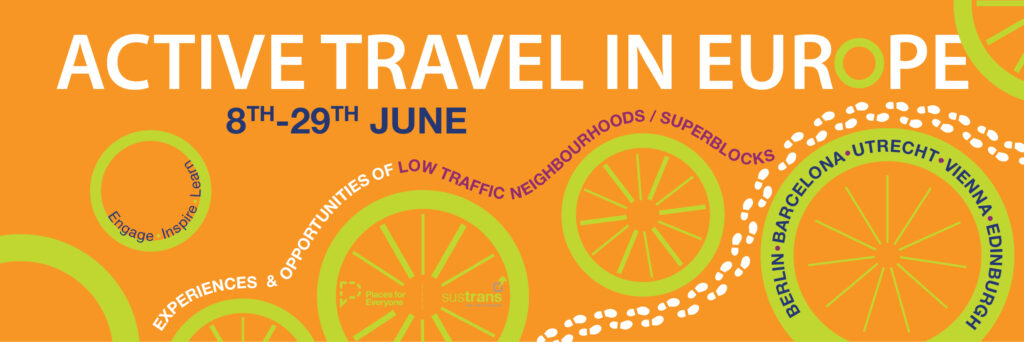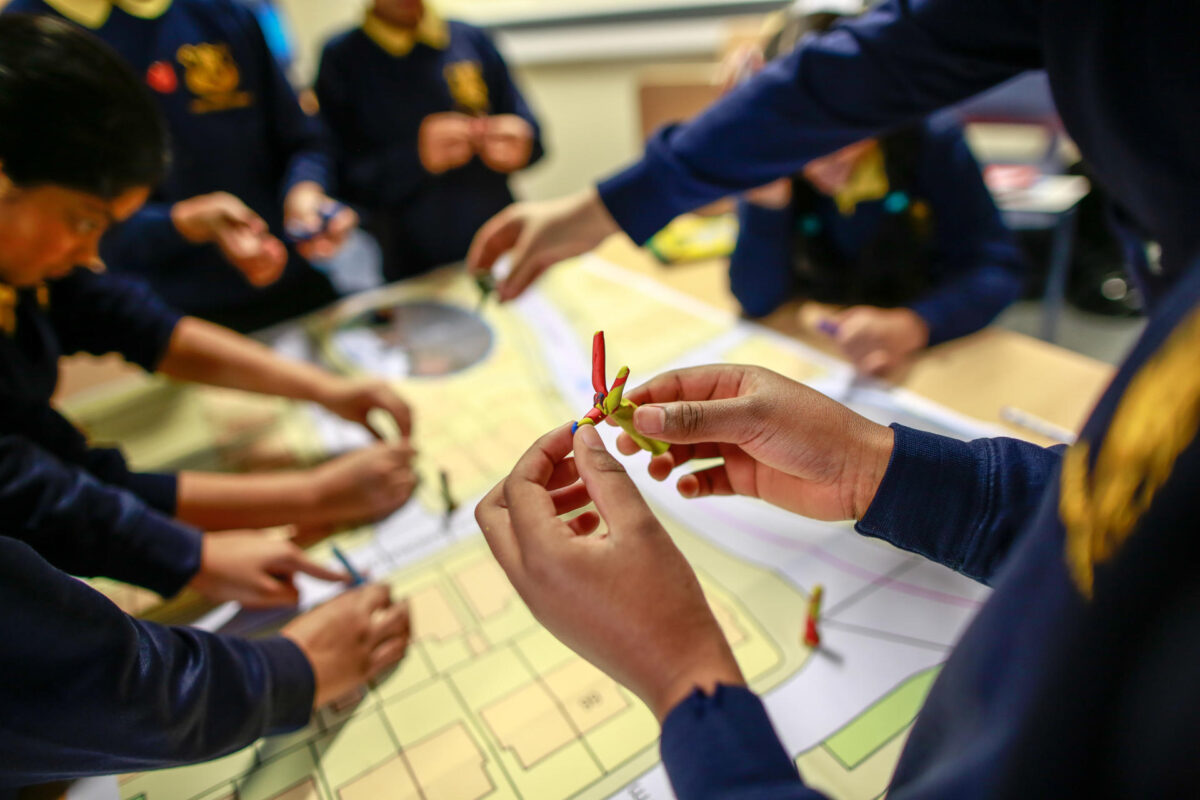Gender & Place in Europe is a virtual series that featured planners, researchers, and practitioners from around Europe to share case studies and lessons learnt from first hand experiences in making places more gender equitable.
This series provides a platform for inspiring approaches to reducing gender inequalities in the built environment, with a focus on data, engagement and policymaking. Revisit the archive of presentations and videos to learn about:
- How to collect relevant data
- How to implement gender mainstreaming within local authorities/public sector bodies
- Overcoming misconceptions and getting the messaging right
- Practical design examples of how gender mainstreaming can reshape a place
21 March: What local authorities can learn from the experiences of women nightshift workers in Barcelona
Barcelona-based feminist urban planning collective, Collectiu Punt 6, shared highlights from their award winning publication, Nocturnas. Nocturnas provides an in-depth study of the experiences of women nightshift workers in the Barcelona Metropolitan Area (BMA) to shine a light on how the design of cities affect women’s everyday experiences of transport, work options, and their personal lives.
Presented by sociologist and planner Sara Ortiz Escalante, this webinar also provided examples of how the collective has worked with local authorities to conduct night time audits and implement measures to embed a gender-responsive lens in planning.
17 April: Embedding Gender Mainstreaming in a European capital city – Vienna’s Experience
Gender budgeting has been legally binding in Vienna since 2005, and four years later it became a legal obligation for all of Austria. In Vienna, gender budgeting acts as a foundation for the city’s gender mainstreaming work, a critical part of Vienna City Council’s approach to service delivery.
In this webinar Ursula Bauer, Head of Section for Gender Mainstreaming in Vienna City Council demonstrated how the city has embedded and embraced gender mainstreaming. She covered the practical steps to take to embed this perspective within a local authority – from building a bank of evidence to reporting and controlling.
This webinar charted a long term view of the benefits and impacts of gender budgeting and gender mainstreaming in Vienna, and how other local authorities can learn from the city’s experience.
The recording and presentation slides are below.
9 May: Barcelona City Council – Strategies and Implementations
In our second session about Barcelona, we received an insight into how Barcelona City Council is reshaping the city through gender mainstreaming. This presentation covered the subject across many scales – from an overarching gender mainstreaming strategy of the city to investigating how public spaces can be improved through a gendered lens.
Attendees received an overview from Estel Crusellas Tura, who has worked on Barcelona’s gender mainstreaming strategy since 2013. She’s currently part of the Directorate of Gender Services and Time Policies team, where, among others, she is in charge of the II Plan for Gender Justice (2021-2025) for the Barcelona City Council.
Blai Martí, an expert in gender mainstreaming in local policies, gave further detail on the council’s design guidance and methodologies to implementing gender mainstreaming across the city. He specialises in gender budgeting, mobility services and urban planning within the Barcelona City Council.
The presentation slides and recording are available below.
22 May 2024: Closing Panel
Our closing panel addressed the present and future of gender mainstreaming in Europe, looking at topics such as engagement, data collection, allyship, and recommendations to take forward in your work.
About the panel:
Shgufta Anwar, Founder, Women on Wheels
Shgufta is the founding director of Women on Wheels, a Glasgow-based community cycling hub for women. A service designed and led by women, Women on Wheels deliver a range of cycling activities to get women back on a bike or onto a bike for the very first time. Their vision is ‘to make women on wheels the norm, not the exception.’
Sara Candiracci, Associate Director, Cities, Planning and Design Team, Arup
Sara had the role as research director for Arup’s report ‘Cities Alive: Designing cities that work for women‘, published in 2022, that explored the importance of gender-inclusive and responsive approaches within urban planning when creating thriving cities that benefit all residents.
Romain Loubiere, Co-Founder, Cyclable by Design
Romain is an urban planner who records various data as part of his work – amongst other – to highlight how women are still under-represented in Paris’ cycling boom. He is a member of both the collective FéminiCités and Femclub that investigate urban planning through an intersectional gender lens.
The panel was chaired by Tiffany Lam, DEI Lead at Sustrans whose research specialties include safer cities for women and girls and gender-inclusive cycling.
Resources
Gender mainstreaming resources, reports, and case studies mentioned in the Gender & Place in Europe Series are recapped in this downloadable list below. Please note: some resources are not in English; web-based translation tools can be used to access the content.



